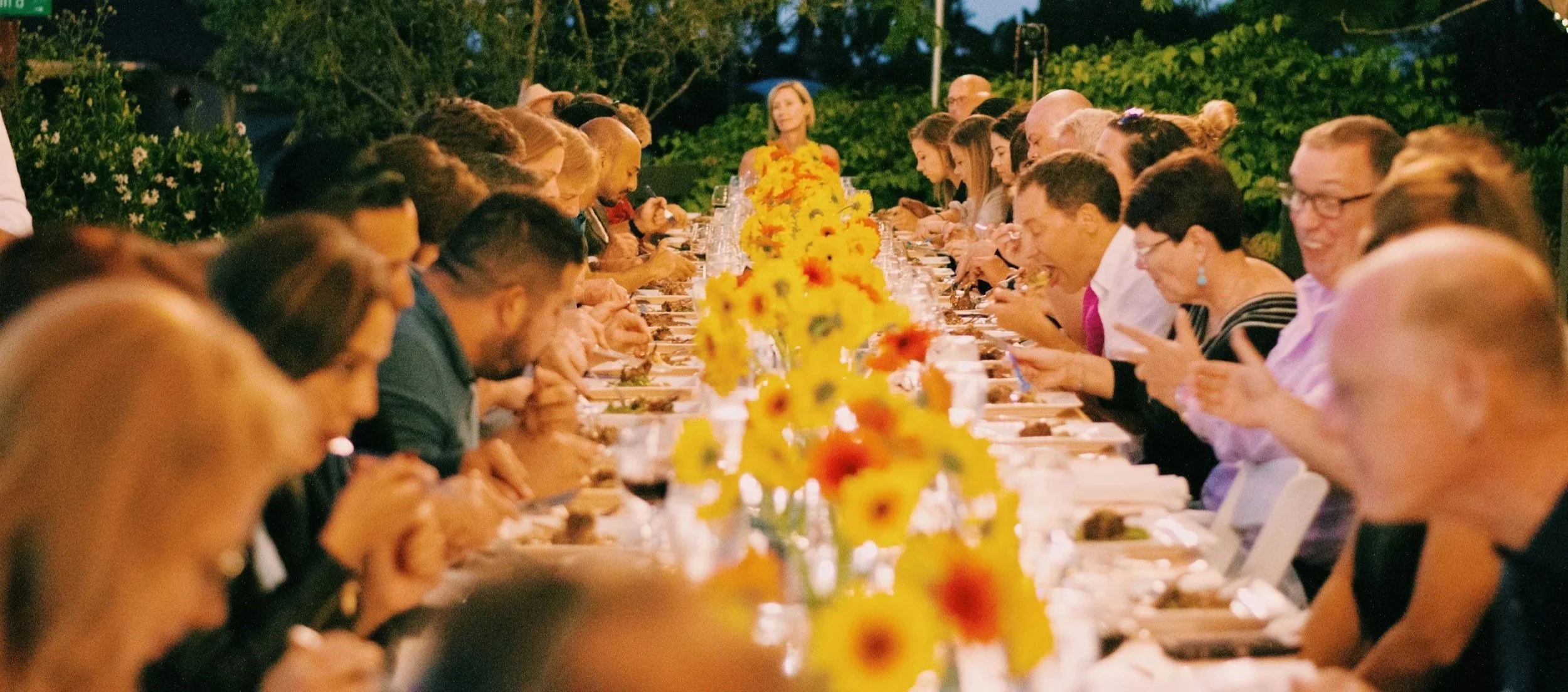Blessing, Family-Style
There is so much to learn from Jesus’ parables. These stories Jesus told when He preached are multi-layered and have more than one “moral to the story.” The gospel of Luke, chapter 15, contains the familiar parable of the Prodigal Son. Jesus tells this story of a son who demanded his inheritance from his father, moved away from the family, and spent it all—wasting it away on temporary, harmful pleasures. The son eventually became so destitute that he humbled himself to come home and request that his father employ him as a servant. He remembered how his father cared for his servants, that they never lacked, and he reasoned that, at least as a servant, he would have something to eat. When his father saw him walking on the path toward home, however, he ran to meet him. The father embraced his son, welcomed him back into the family, and threw a banquet to celebrate his son’s return.
But the ending of this parable throws us a curveball. Remember, there was an older son who stayed home, kept working on the family farm, and, compared to his younger brother, honored his father continually. The story ends with the older brother furiously angry, and his relationship with both his father and his younger brother is severely tested. It seems like the father found his younger son only to lose his older son—what a sad ending.
The older brother became angry and refused to go in. So his father went out and pleaded with him. But he answered his father, ‘Look! All these years I’ve been slaving for you and never disobeyed your orders. Yet you never gave me even a young goat so I could celebrate with my friends. But when this son of yours who has squandered your property with prostitutes comes home, you kill the fattened calf for him!’ Luke 15:28-30 (NIV)
It is sad that neither brother fully realized what it meant to be a son. The younger brother recognized how well his father provided for the servants. He remembered that he never saw his father’s servants hungry or lacking—every need was met, and they always had enough. When he realized the futility of his life apart from his father and family, the younger son desired to at least become one of his father’s servants. Meanwhile, the older brother remained with his father, but never experienced any of the lavish blessings he watched his brother receive.
Like the other parables of Jesus, there is more than one moral to the story. The hero is, of course, the father. He represents our heavenly Father, who is grieved when people separate from Him and who rejoices when they come home. Our Father is ready to forgive, welcome, and extravagantly bless all who come to Him.
The brothers, however, are cautionary tales who show us what not to do. On one hand, we are all God’s servants, and are blessed to be so. Like David said, “Better is one day in your courts than a thousand elsewhere; I would rather be a doorkeeper in the house of my God than dwell in the tents of the wicked” (Psalm 84:10). But while we are servants, we can also be friends of God. Moses and the twelve disciples were called friends of God, and we can deepen our relationship with Him to that level also (Exodus 33:11, John 15:15).
Now here is where God really shows off: we are not only servants and not only friends … we also are His children. Whereas the Father’s servants have everything they need, and friends enjoy an intimate relationship with Him, the children inherit it all! If the older brother had realized what it meant to be a son, he could have experienced his father’s provision, a close relationship with his father, and all the extravagance reserved especially for the children, the heirs. And if the younger brother had understood the magnitude of what he was giving up, he would have never left his father.
I pray that we will all understand all that it means to be a child of God, and never take it for granted or look for acceptance and favor anywhere else. The invitation of this parable is not simply to “come home,” but to come home and live as sons and daughters. The Father does not want us merely working for Him or even just walking with Him—He wants us to live from the love, identity, and inheritance He has already given us in Christ. Whether we’ve run far like the younger brother or stayed close like the older one, the Father is calling us to step out of striving and into the joy of being His child.


